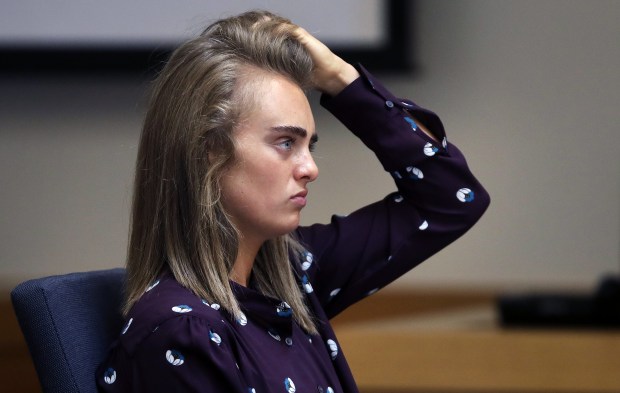We all know that killing is wrong; that’s a given fact. The law’s primary job is to keep people safe, in part by punishing those who take the life of another. But how should the law react when one person’s actions lead to another’s suicide?
This question poses a challenge to the legal system, as evidenced in Michelle Carter’s trial currently taking place in Massachusetts. Carter was recently found guilty of involuntary manslaughter against her ex-boyfriend Conrad Roy III after the young man locked himself in his truck while it filled with carbon monoxide.
Ultimately, Roy took his own life. But text messages between the couple served as evidence that Carter knew about the suicide prior to and while it was happening. She even encouraged the troubled teen to go through with it, going as far as saying things like “the time is right and you’re ready, you just need to do it!” when he expressed hesitation.
There is no doubt that Carter played a part in Roy’s suicide. But controversy exists surrounding whether or not she was directly — and legally — at fault for his death.
As someone who has taken an interest in law all my life, I became instantly intrigued by that controversy. When I heard about the ruling, I couldn’t help but agree with the judge. Although Carter didn’t explicitly take her partner’s life, she exemplified behaviour that was reckless and intentional, and in turn, her actions led to the teenager’s death.
The United States Code defines manslaughter as “the unlawful killing of a human being without malice,” adding that involuntary manslaughter includes actions committed “without due caution . . . of a lawful act which might produce death.” Carter’s actions definitely fall under these criteria, particularly the second. The conversations that she exchanged with the victim, lawful or not in and of themselves, exemplified encouragement for Roy to take his own life — encouragement which definitely qualifies as an “act [that] might produce death.”
A large consideration that exists with this case is that the victim was reluctant to take his own life. In the texts the couple exchanged, Roy heavily hesitated, giving excuses for not committing the act which included not wanting to hurt his family and that the time was inconvenient. Had Carter not instructed him to follow through with the act, there is a strong possibility that Roy would have desisted.
Carter’s failure to direct Roy to “get out of the truck” as it filled with deadly carbon monoxide was indeed criminal, as determined by the judge presiding over the case. In fact, according to witness testimony, Carter even directed Roy to get back into the truck over the phone after he got out in hesitation. Roy, being depressed, was extremely influenced by his girlfriend’s insistence that he carry through with his suicide. Had she reacted differently while he was taking his own life, I agree that he would not have been able to follow through with it.
This case could have major implications on the legal system, as a teenager was convicted of murder in another’s suicide. CNN reports that this exemplifies a “judicial willingness to” extend the liability of one’s independent choice to commit suicide onto others.
However, I believe this is the way that the legal system should be heading. I think it is time that people start taking responsibility for actions that can cost a life. Carter’s case is no different; she had a duty to inform authorities that her boyfriend was dying, but instead of doing so, she encouraged and insisted that he follow through with it.
In the case of Michelle Carter, I believe justice was served.

